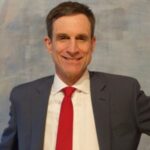
RECOMMENDED READING
As counting continues and lawyers gear up for courtroom battles, Election Day now looks to become Election Week, and maybe even Election Month. But while we do not yet know who will be president, November 3 allows us to see certain political realities more clearly.
One notable reality: the ongoing ignorance of our leadership class. As was the case in 2016, nearly all the “smart people” agreed that Trump was doomed. Who could imagine otherwise, they asked themselves, given the polling data?
Of course, Biden did not win decisively, and Trump succeeded in motivating a larger number of people to vote for him than in 2016. Why did so few smart, informed pundits fail to see that this would happen?
The reason is simple. American elites have lots of data but suffer from low information. They (we, if we’re to be honest) are extremely well informed about what other people on Twitter are saying. We can rattle off facts and know our way around Washington minutia. But we don’t have a clue what’s going on in the United States of America.
One cause of our ignorance is laid out by Charles Murray in Coming Apart. The upper echelons of American society live in culturally isolated enclaves, “superzips” of unprecedented homogeneity. We don’t just share high incomes. We’re also likely to have the same limited range of experience.
Murray formulated 25 questions to determine how thoroughly one is enclosed in the elite bubble. I boil it down to one: Have you ever had a job that required you to work on your feet? In my experience, fewer than 10 percent of the well-educated technocratic elite under 45 can answer “yes.” They had internships in their youths, not jobs.
In short, the opinion-making factories in 2020 are staffed by people working in chairs who have very little experience of the life-world of the majority of Americans. As a consequence, our ruling class (understood broadly) has little basis on which to sift data and correct for its inevitable distortions, omissions, and exaggerations.
This lack of experience makes elites susceptible to ridiculous claims. My favorite in 2020 was the notion that Trump alienates minority voters, because he uses racist dog whistles, etc. In the event, he made gains among black and Hispanic voters, which is not surprising if you’ve worked on our feet for any period of time, or regularly socialize with people who work on their feet.
In my estimation, white, college-educated voters were almost certainly the cohort made most anxious by the media’s charges that Trump is a racist, not minority voters. I do not base my judgment on data (although I’d like to see some). Rather, my speculation about the political salience of the rhetoric of “anti-racism” rests in the fact that for those in the professional classes it is far more dangerous to be white and labeled a “racist” than to be a working class minority who might suffer from racial prejudice (not the least because the former has more to lose). In his nomination acceptance speech Biden reiterated the lie that Trump said that “good people” were on both sides of the Charlottesville street brawls. Biden was speaking to higher income, suburban whites, not blacks.
Higher education also contributes to elite ignorance. Instruction focuses on “theory.” In the humanities one receives training in “critical thinking,” which means learning to analyze in terms of race, sex, sexual orientation, and other categories of “marginality.” In the social sciences, one is often taught one or another form of economic analysis.
There’s a world of different between critical race theory and hard-nosed analysis of individual interests. But both are all-explaining approaches that seduce today’s elites with the illusion of seeing “through” surface realities to what is “really going on.” This illusion deters us from talking to people and listening to what they say.
The historian John Lukacs often distinguished between public opinion and public sentiment. To a great extent, the man on the street has opinions that come second hand. It’s not that he is unreflective. Rather, he outsources ideas to people like me, and then adopts the ones that seem right to him and rejects those that don’t.
In a healthy political environment, idea-people have many sentiments in common with the median American. This outlook and sensibility makes public opinion concordant with public sentiment. The shared experience of depression and war made postwar white America uniquely well coordinated (as Murray documents). The harmony of public opinion and sentiment allowed leaders to have a relatively accurate sense of the mind of the nation, and this in turn encouraged prudent adjustments of rhetoric and policies.
The self-isolation of elites—made literal during the lockdowns as the professional classes retreated to their home offices—has led to ideas more and more out of sync with life-world of the majority of Americans. In these circumstances, public sentiment becomes increasingly voiceless. Many of his supporters thrilled to Trump because he “spoke for them”—a phenomenon our leadership class did not take seriously, reinterpreting it as white backlash or some other pathology rather than the thrill of having someone in a position of authority say out loud what you feel, but nobody at the top is saying.
I am cheered by the resilience of our democratic institutions in this extremely bitter and closely contested election. But I worry about the extraordinary insularity of elites (and insularity amped up by increasingly punitive attitudes toward dissent). We are not going to find our way toward a stable left-right politics until public opinion better expresses public sentiment. For that to happen, opinion-makers need to share more of their lives with and listen to the people they purport to speak for.
Recommended Reading
On Buy American: Trump Should Listen to Steve Bannon, Not Steve Moore
A 2020 presidential contender unveiled a 700 billion dollar ‘Buy American’ plan today to rebuild America’s manufacturing sector devastated by the coronavirus.
Tracing the Path of the Modern GOP, From Reagan to Trump
The Wall Street Journal’s Gerald Seib and American Compass’s Oren Cass discuss future paths for the GOP.
Trump Lost the Race. But Republicans Know It’s Still His Party.
Jeremy Peters highlights American Compass as a leader in building a post-Trump conservative movement by bringing together Capitol Hill staff and policy experts to debate the successes and failures of the past four years.








